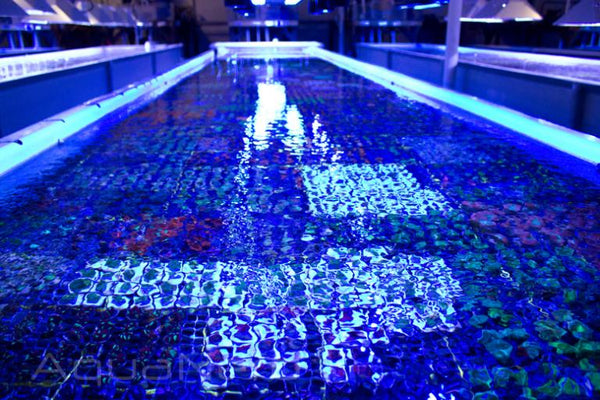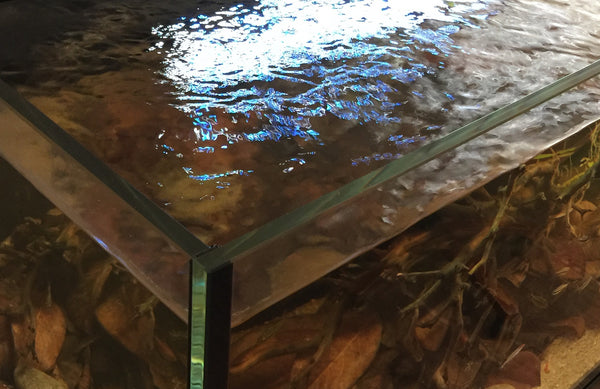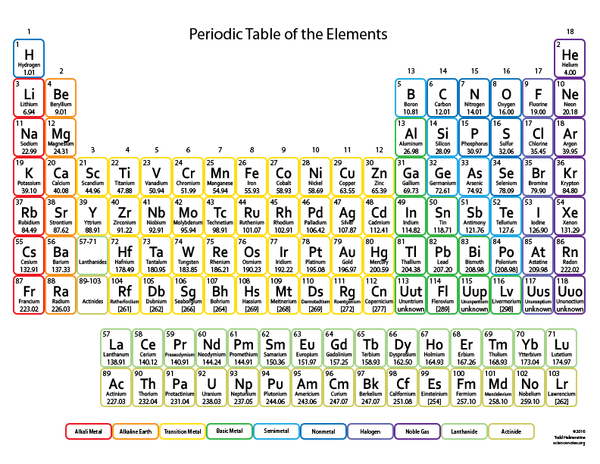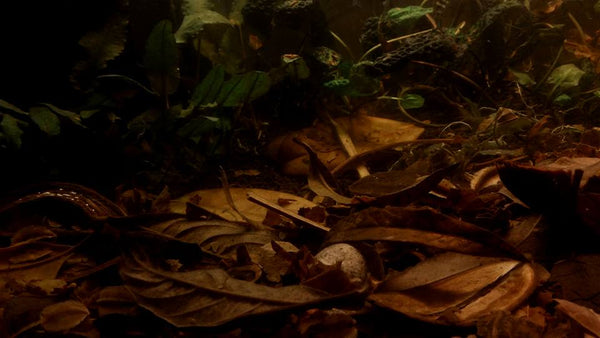- Continue Shopping
- Your Cart is Empty
"My chemical romance.." Facing my fears while learning the ways of blackwater...
"You have brains in your head. You have feet in your shoes. You can steer yourself wherever you choose." - Dr. Seuss
As I embraced on my "blackwater journey" years back, I was keenly aware of the importance of monitoring water parameters from decades in the reef world, and my involvement in the large-scale propagation of corals.

I knew that a certain degree of anal-retentive vigilance could only benefit my blackwater/botanical aquariums, so I employed what I knew- regular water testing- as part of my husbandry routine.

Now, I admit that my knowledge of chemistry kind of...sucks. I have a heaIthy respect- okay, actually, a fear- of chemistry..I mean, I sort of understand "what I need to know" to run an aquarium, but I know I need to do better. In fact, as adventurers into the blackwater environment, we all need to do a bit more to learn some of this stuff, so that we can provide optimum environmental conditions for our fishes, make meaningful observations, develop replicable, useful techniques, and be able to share our findings with others. During my lifetime aquatic journey, I DID learn a few things about water chemistry, and was, in my own crude way, able to apply some of the stuff I learned in both school and hobby endeavors to my work.

Along the way, I noticed some stuff about low pH aquariums that was sort of unique. In particular, pH and TDS, two measures familiar to me as a reef keeper, are really important, yet applied in a different manner in the "murky" world of blackwater aquariums. A lot of pent-up fear and vague, yet urgent warnings about the dangers of flirting with lower pH and carbonate hardness in aquariums awaited me at every turn when I told fellow hobbyists what I was up to...and of course, I was hooked immediately!
I'm no chemist, but I do have a very, very rudimentary, perhaps even dangerously ignorant- understanding of pH. I remember from chemistry that pH is the measure for the concentration of the hydrogen ions, and that in "neutral" water, the pH is 7. When you increase the concentration of H+ the pH will go down (because pH is the "negative log" of the H+ concentration). That was enough to get me a solid C+ in Chem 101!

Where things get interesting for us is when you look at pH and its relationship to stuff that scares aquarists, like phosphate (pOH)...stuff that affects water quality (ahh, some of the stuff that the "vague warnings" were all about!). I remember reading somewhere that in "neutral" water, both the pH and pOH equal a total of 14. You can't have more than that. Thusly, when you increase the concentration of H+, the pH goes down, and the pOH goes up...Add I think that is at least one reason for the "freak out" we sometimes encounter when we tell other hobbyists that we're about to run our Altum angel tank at pH 4.9!
Of course, then there is the whole thing about TDS ("total dissolved solids"). Shrimp keepers, in particular, seem to love this measure, and reefers love it, too, because it tells us if it's time to change our RO/DI membranes. I think TDS meters are useful for many purposes...and interchangeably, you could probably get away with referring to them as a "conductivity meter", because they actually measure how easily a current will run through your water. The easier a current can run through the water, the higher the concentration of TDS present in the water. A TDS meter converts the "conductivity" measure to a "TDS" measure. It's not super-precision, in lab terms, but in terms of what we use it for, it's "fit for purpose" as they say, right?

From a water quality management standpoint, hobbyists tend to use TDS as an indicator of how much "stuff" is dissolved into the water (I am SO showing my simplicity and ignorance here, so chemistry guys, feel free to spank me as needed...). The problem with measuring TDS, in my humble opinion, is that it's kind of "vague", in that it doesn't tell you what the "stuff" that's dissolved in the water is. I mean, it could be anything from organic compounds to mineral salts, or hot cocoa mix, for that matter!
Yet, we all agree that we want as low a reading on TDS as possible in most "blackwater" aquariums, and that's why RO/DI water, with all of it's "mysteries", correlates well with our goals of low pH. And of course, since some municipal tap water can have TDS as high as 500 or more out of the faucet, it's not a bad thing to measure, despite its "vagueness"- in addition to your other parameters- as an overall indicator of water quality. I think that a TDS meter is a nice tool to have in our arsenal of stuff to help maintain our aquariums. Now, one weird thing is that you can have a fairly high TDS reading even off your general hardness and carbonate hardness are low, because of the various ions dissolved into the water. Logical, but annoying! Okay, so chemistry IS kind of interesting!

And another thing: I'm not advocating an obsession over every single water parameter, pH included. You'll go crazy "chasing numbers." I've seen dozens of reef keepers proudly obsessed with chasing every number for every parameter, who have some of the shittiest (yup) tanks I've ever seen. Seriously. Just having information without the understanding about what it means and how to apply it to your situation is pretty useless. (So sayeth the fish guy who has a very shaky chemistry background as he pontificates on this very subject...yikes!)
Now, one thing that is interesting and important to grasp, IMHO, is the relationship between lower pH water and ammonia. This, I feel, is where the bulk of the "mainstream hobby freak out" against our blackwater/low pH tanks stems from. As hobbyists, we should understand what we call "TAN"- or "total ammonia nitrogen." Our hobby test kits measure both ammonia (NH3) and ammonium (NH4+, also called "ionized ammonia"), which comprise "TAN." This has important implications for those of us who maintain a low pH system ( like, below 6.0).

We need to be careful in managing our low pH, blackwater aquariums- particularly when performing water changes. Here's why: Low pH can have a detrimental affect on the population of nitrifying bacteria that converts ammonia to nitrite. Because of the acidity of the water, these bacteria populations can drop so low that the "total ammonia nitrogen" (TAN) level can rise quickly. No cause to freak out, because if the pH stays low the TAN level is pretty much all ammonium (NH4+), which is the essentially "nontoxic" ("gulp" for saying that!) component of TAN. (To make you feel better, ammonium, even at high concentrations, doesn't kill fishes!)

If you do water exchanges with lots of alkalinity buffer added to the makeup water, the pH goes up, right? And what happens at a higher pH level? You guessed it: The "non-toxic" ammonium can be quickly converted to very toxic ammonia, potentially causing ammonia poisoning to your fishes. I will hazard a guess that this is where many hobbyists have screwed up, and that many the "anomalous deaths" in otherwise "well maintained" low pH tanks were caused by this situation...and that further added to the "lore" that suggests that low pH, blackwater-type aquariums are bad news! Key takeaway here: Keep things stable. If you're going to keep a low pH, KEEP it that way. Use water for exchanges that has pH values consistent with the water in your aquarium.
So, it's really not that scary, if you understand this concept. Just be consistent, test your aquarium regularly and your makeup water, and stay cool and calm. This is common-sense aquarium management...stability. Blackwater aquariums are really no more difficult to keep than a reef aquarium, African Rift Lake cichlid tank, or "high tech" planted system. In my opinion, it's mainly the fact that not everyone "gets" or appreciates the unusual aesthetic, coupled with misunderstanding (or lack of understanding) of this environment, which has helped perpetuate the myth that these are highly unstable, difficult-to-maintain, and downright "dangerous" aquariums.

Honestly, I'll tell it like it is:
I think that hobbyists who did not make the effort to understand the dynamic of these type of aquariums and maybe had a bad experience or two in their attempts to keep one just "piled it on."
If you're going to try a specialized aquatic system, you need to learn about the dynamics of the environment you are attempting to maintain. This is not rocket science, or some unique problem related to blackwater systems...it's just how everything is in the aquarium world!
Ok, off my soapbox now and back to my overly-simplistic, quasi-ignorant attempt to give you more information on the realities of these systems!
Some interesting things about blackwater habitats: The concentrations of magnesium, potassium, and calcium, sodium are very low in black waters. And of course, they categorically have lower pH and lower conductivity (yikes, can we say "TDS" for our purposes?) than "whitewater habitats. And, as we've discussed before, this has some interesting implications for the animal populations within them. Some animals, like snails, need more calcium than is available in blackwaters to build their shells, so you won't see many snails in blackwater habitats. Blackwater habitats, being lower in nutrients than "whitewater" habitats, are typically less "productive", yet still host an enormous variety of life forms.

Okay, my head is spinning now, as I think I've hit my limit on chemistry for the next month! However, it's kind of important, right? I mean, this stuff can make the difference between a wildly successful blackwater aquarium and an average one.

So, as they say, "Don't believe the hype!" Don't be afraid! Make the effort to learn about this stuff for yourself. I didn't do an exceptionally great job of explaining this stuff, but I hope I at least left you with the impression that it's not THAT complicated to find out about and grasp these concepts as they apply to our hobby. Some quality time on the iPad, with a Thai iced tea and some salt-and-vinegar potato chips, is really all that stands between the nasty influence of the ignorant, misinformed hobby "regurgitators of negativity", and you becoming a well-informed, "practicing" blackwater hobbyist!

So, don't be afraid to roll up your sleeves and work with this stuff. There is SO much to learn that it's not even funny! We're really at the ground floor of our understanding of how to manage these unique aquariums, and every one of us has an important role to play, helping to dispel myths, develop and perfect techniques, and add to the body of knowledge of blackwater, botanical-influenced systems.

Stay bold. Stay focused. Stay fearless. Stay...awake!
And Stay Wet.
Scott Fellman
Tannin Aquatics
2 Responses
Scott Fellman
Excellent point, Joshua. And I agree, the incidence of algae outbreaks in blackwater tanks IS severely limited. You certainly see algae, but I’ve not heard of one of those “nightmare-algae-is-eating-my-tank!” stories from a “tinter!!”
Joshua Morgan
You forgot an important advantage of the blackwater tank…the same characteristics that force you to choose blackwater plants carefully also severely inhibits algae growth. None of my all-out blackwater tanks have ever had a severe algae problem (they may have a little, but not much)









Scott Fellman
Author